8 start with C start with C
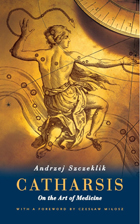
The process of diagnosis, for instance, belongs to a world of magic and metaphor; the physician must embrace it like a poem or painting, with particular alertness and keen receptivity. Speculation on ways to slow aging through genetics, meanwhile, draws directly on the dream of immortality that artists and poets have nourished through the ages. And the concept of catharsis itself has made its way from the writings of Aristotle to today's growing interest in the benefits of music to health, especially in newborns. As Szczeklik explores such subjects as the mysteries of the heart rhythm, the secret history of pain relief, the enigmatic logic of epidemics, near-death or out-of-body experiences, and many more, he skillfully weaves together classical literature, the history of medicine, and moving anecdotes from his own clinical experiences. The result is a life-affirming book that will enrich the healing work of patients and doctors alike and make an invaluable contribution to our still-expanding vision of the art of medicine.
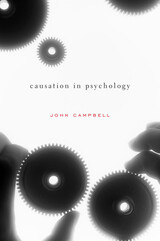
A renowned philosopher argues that singular causation in the mind is not grounded in general patterns of causation, a claim on behalf of human distinctiveness, which has implications for the future of social robots.
A blab droid is a robot with a body shaped like a pizza box, a pair of treads, and a smiley face. Guided by an onboard video camera, it roams hotel lobbies and conference centers, asking questions in the voice of a seven-year-old. “Can you help me?” “What is the worst thing you’ve ever done?” “Who in the world do you love most?” People pour their hearts out in response.
This droid prompts the question of what we can hope from social robots. Might they provide humanlike friendship? Philosopher John Campbell doesn’t think so. He argues that, while a social robot can remember the details of a person’s history better than some spouses can, it cannot empathize with the human mind, because it lacks the faculty for thinking in terms of singular causation.
Causation in Psychology makes the case that singular causation is essential and unique to the human species. From the point of view of practical action, knowledge of what generally causes what is often all one needs. But humans are capable of more. We have a capacity to imagine singular causation. Unlike robots and nonhuman animals, we don’t have to rely on axioms about pain to know how ongoing suffering is affecting someone’s ability to make decisions, for example, and this knowledge is not a derivative of general rules. The capacity to imagine singular causation, Campbell contends, is a core element of human freedom and of the ability to empathize with human thoughts and feelings.
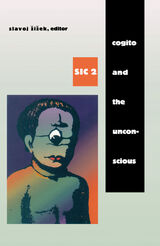
Noting that for Lacan the Cartesian construct is the same as the Freudian "subject of the unconscious," the contributors follow Lacan's plea for a psychoanalytic return to the cogito. Along the path of this return, they examine the ethical attitude that befits modern subjectivity, the inherent sexualization of modern subjectivity, the impasse in which the Cartesian project becomes involved given the enigmatic status of the human body, and the Cartesian subject's confrontation with its modern critics, including Althusser, Bataille, and Dennett. In a style that has become familiar to Žižek's readers, these essays bring together a strict conceptual analysis and an approach to a wide range of cultural and ideological phenomena—from the sadist paradoxes of Kant's moral philosophy to the universe of Ayn Rand's novels, from the question "Which, if any, is the sex of the cogito?" to the defense of the cogito against the onslaught of cognitive sciences.
Challenging us to reconsider fundamental notions of human consciousness and modern subjectivity, this is a book whose very Lacanian orthodoxy makes it irreverently transgressive of predominant theoretical paradigms. Cogito and the Unconscious will appeal to readers interested in philosophy, psychoanalysis, cultural studies, and theories of ideology.
Contributors. Miran Bozovic, Mladen Dolar, Alain Grosrichard, Marc de Kessel, Robert Pfaller, Renata Salecl, Slavoj Žižek, Alenka Zupancic
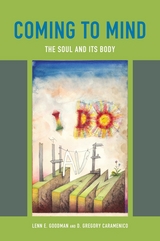
Rooted in some of the richest philosophical and intellectual traditions of Western and Eastern philosophy, psychology, literature, and the arts and the latest findings of cognitive psychology and brain science—Coming to Mind is a subtle manifesto of a new humanism and an outstanding contribution to our understanding of the human person. Drawing on new and classical understandings of perception, consciousness, memory, agency, and creativity, Goodman and Caramenico frame a convincing argument for a dynamic and integrated self capable of language, thought, discovery, caring, and love.
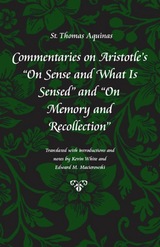
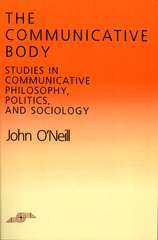
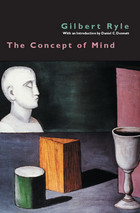

In this important book, Susan Hurley sheds new light on consciousness by examining its relationships to action from various angles. She assesses the role of agency in the unity of a conscious perspective, and argues that perception and action are more deeply interdependent than we usually assume. A standard view conceives perception as input from world to mind and action as output from mind to world, with the serious business of thought in between. Hurley criticizes this picture, and considers how the interdependence of perceptual experience and agency at the personal level (of mental contents and norms) may emerge from the subpersonal level (of underlying causal processes and complex dynamic feedback systems). Her two-level view has wide implications, for topics that include self-consciousness, the modularity of mind, and the relations of mind to world. The self no longer lurks hidden somewhere between perceptual input and behavioral output, but reappears out in the open, embodied and embedded in its environment.
Hurley traces these themes from Kantian and Wittgensteinian arguments through to intriguing recent work in neuropsychology and in dynamic systems approaches to the mind, providing a bridge from mainstream philosophy to work in other disciplines. Consciousness in Action is unique in the range of philosophical and scientific work it draws on, and in the deep criticism it offers of centuries-old habits of thought.
READERS
Browse our collection.
PUBLISHERS
See BiblioVault's publisher services.
STUDENT SERVICES
Files for college accessibility offices.
UChicago Accessibility Resources
home | accessibility | search | about | contact us
BiblioVault ® 2001 - 2024
The University of Chicago Press









